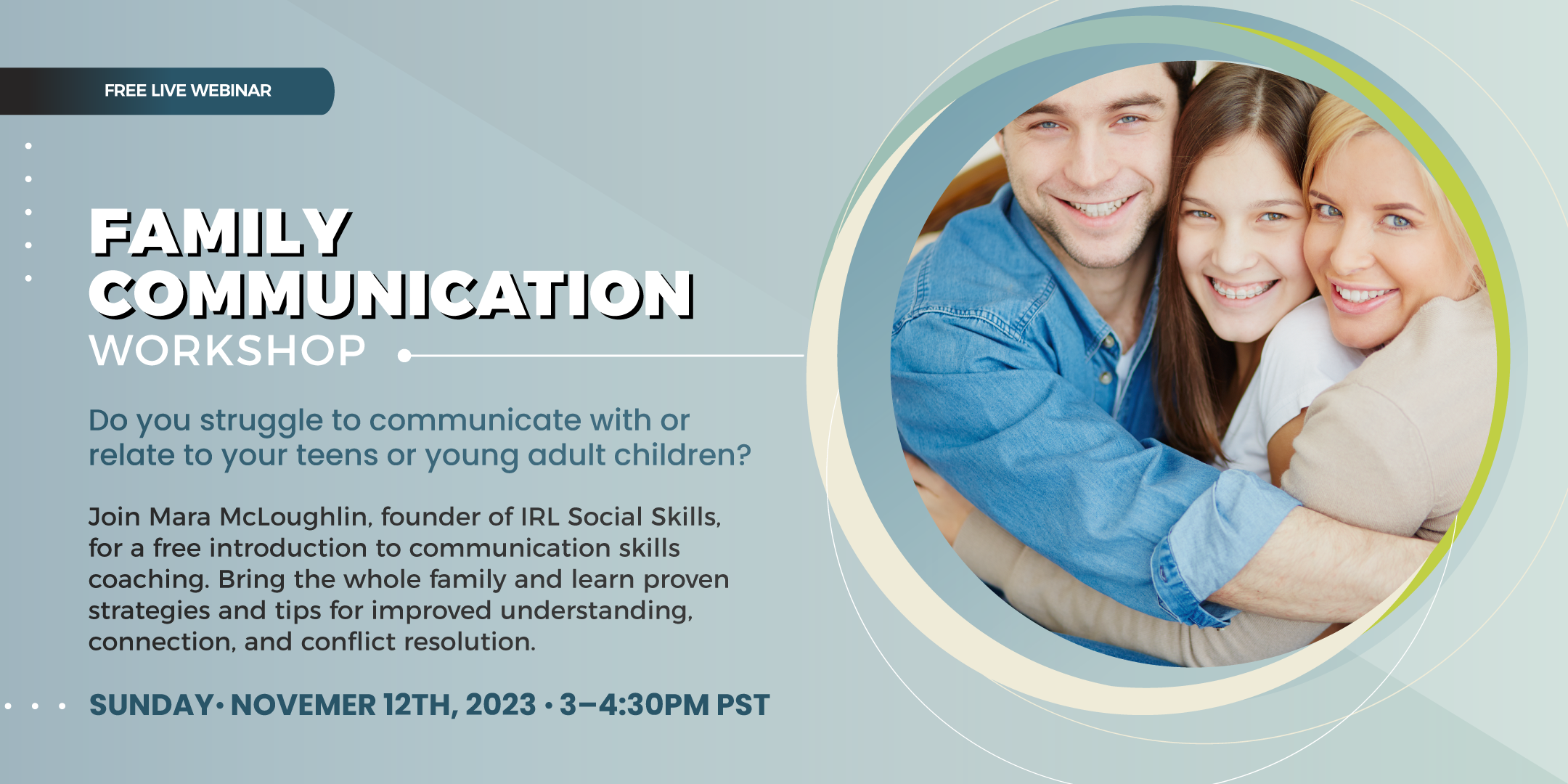FREE Family Communication Webinar
All families experience communication difficulties from time to time—it’s a normal part of family life. But when misunderstandings and communication breakdowns happen, everyday interactions can become something both sides dread. Add in a little extra stress at the holidays, difficult topics, and heated international conflict and you’ve got a real powder keg of misunderstanding.
IT DOESN’T HAVE TO BE LIKE THIS!
Effective communication is a skill and it’s not adequately taught in schools. Many parents didn’t receive social or communication skills education themselves as young people, so we figure it out as we go along. But how can we model something that wasn’t modeled to us in the first place?
People overwhelmingly tend to inherit communication styles which are often passed down from generation to generation. This doesn’t mean our elders were bad or wrong; it’s simply a framework for understanding why family communications can sometimes be counter-intuitive and counter-productive.
The good news is: communication skills can be learned
As with any other art, effective communication can be learned. Almost no one sits down at a piano and starts playing Beethoven. But by learning the basics, and then practicing frequently, a concert pianist is made.
Communication within families is arguably much more difficult than learning to play piano. Why? Because there are multiple personalities and multiple styles and preferences that influence the effectiveness of communication—especially when strong feelings or difficult topics are involved.
Even the most tightly-knit families can experience difficulties communicating effectively. As children grow up and transition through different stages, their brains process information differently. The same is true for adults when faced with significant stressors. Neurodiversity adds another layer of complexity, due to communication challenges.
The starting point for constructive, supportive family communication is to meet in an atmosphere of curiosity and warmth, even when the topic of conversation is uncomfortable. Building on that supportive environment—and employing certain skills—the conversation can flow more easily, with both sides feeling heard, respected, and understood.
Our FREE Family Communication Webinar on Sunday, November 12th was created to help families learn and practice these essential skills for better conversations that lead to improved connection and understanding.
If you…
…struggle to connect with or relate to your teen or young adult child?
…end conversations in a huff, fraught with misunderstanding?
…feel like you (or your kids) walk on eggshells for fear of saying the wrong thing…
…read all the books and listened to the all podcasts and still don't understand why it's SO HARD to relate…
This workshop is for you!
We offer this webinar free of charge, but you do need to register at the link below to save your spot. A replay will be sent out to all who register, to view whenever it’s convenient.
Join IRL Social Skills founder Mara McLoughlin, and Heather Rocha, professional counselor associate, for this free webinar that will walk you through some of the basics of our communication skills coaching program. Bring the whole family to learn and practice these skills together!
ABOUT IRL SOCIAL SKILLS
IRL SOCIAL SKILLS provides social, relational, and communication skills coaching for autistic, ADHD and other neurodivergent teens and young adults and their families. We do this through online group coaching classes based on the PEERS® curriculum. A diagnosis is not necessary to attend our classes or coaching programs; these skills apply to everyone, regardless of neurotype.

